A PLUME BOOK
LAST MAN OFF
MATT LEWIS is a trained marine biologist with an MSc with distinction in Marine and Fisheries Science. He now lives with his wife and two children near Aberdeen, Scotland.
Praise for Last Man Off
A story that reminds us of the unforgiving nature of the sea and the courage that lies within the everyday heroes that have found themselves in hell.
Bear Grylls
Reads like a sinister version of The Perfect Storm ... Thrilling, compelling, unsettling, rewarding.
The Sunday Times (London)
A dramatic tale of survival in one of the most brutal situations on earth. Feels like reading the diary of a doomed man... so personal and chillingly real; totally takes you there in a way that is not always comfortable.
Steve Backshall
A heart-thumping tale of tragedy and survivalminus the Hollywood ending... page-turning pace, compelling.
Daily Telegraph (London)
One of the most dramatic true-life tales of endurance and survival in recent memory. Should take its place alongside The Perfect Storm as a chilling account of how a fishing trip can go fatally awry. Unflinching and gripping, simultaneously terrifying and stirring.
The Observer (London)
PLUME
Published by the Penguin Group
Penguin Group (USA) LLC
375 Hudson Street
New York, New York 10014

USA | Canada | UK | Ireland | Australia | New Zealand | India | South Africa | China
penguin.com
A Penguin Random House Company
Published by Plume, a member of Penguin Group (USA) LLC, 2015
Originally published in Great Britain by Viking, 2014
Copyright 2014 by Matt Lewis
Penguin supports copyright. Copyright fuels creativity, encourages diverse voices, promotes free speech, and creates a vibrant culture. Thank you for buying an authorized edition of this book and for complying with copyright laws by not reproducing, scanning, or distributing any part of it in any form without permission. You are supporting writers and allowing Penguin to continue to publish books for every reader.
 REGISTERED TRADEMARKMARCA REGISTRADA
REGISTERED TRADEMARKMARCA REGISTRADA
ISBN 978-0-698-18755-9
Cover design: Zoe Norvell
Cover photograph: GS/Gallery Stock
Version_1
For the boys
CONTENTS
AUTHORS NOTE
This book is my attempt to record an event that took place in June 1998 during the winter in the Southern Ocean. I was a Scientific Observer aboard the Sudur Havid , a South African deep-sea fishing boat, and it was my first job since graduating from university as a marine biologist.
Outside South Africa, the fate of the Sudur Havid was never big news. It was just another foreign fishing boat in trouble. Really, I should be calling her the Sudurhavid , or even Suurhavi , for I have come to learn that this was her proper name. But on board I only ever saw the word split on life-rings, and Ive known her as the Sudur Havid for far too long to change. To continue with the confessional, I have used the more familiar term Antarctic Seas for the subtitle of the book when we were technically only South but we were south of the Antarctic convergence, so the water masses and ecology are much the same.
I waited a long time before I started writing Last Man Off . Partly this was due to a lack of self-belief, but it was also because I was trying to get on with my life and forget. I was trying to persuade myself that nothing of any significance had happened, so to write a book about the events was the last thing on my mind.
Im glad I waited to start writing. In the immediate aftermath of the accident I was so caught up in being a participant, and there was so much emotion, that it was impossible to be objective in description. When the police in the Falkland Islands asked me what had happened, I barely paused for breath for three hours, producing sixty-five pages of descriptions, times and details. I kept the transcript of the interview and, eight years later, this and other evidence helped me relive and reconstruct the events. By that time the need to blame had mellowed, I had listened to others as they discussed what had happened, and processed the events myself. Time passed has made the story clearer, and less painful to tell.
There was coverage of the Sudur Havid in Cape Town. Some accounts were based on fact, some were more like fiction, but none were complete. I slipped quietly back into the UK , no cameras or journalists waiting for me at the airport, and I was grateful. My friends and family let me be; they didnt want to drag up traumatic memories, and assumed that I would talk about things in my own time. But I didnt want to tell those I cared about for fear of scaring them, and didnt tell others for fear of upsetting myself. It took years for me to realize that there was a story that deserved to be known. How could the struggle of a crew against the toughest seas in the world have slipped by? While I have been writing, a number of my fellow survivors have died, leaving the biggest story of their lives untold.
I knew that I would need to describe events that I had not directly witnessed. After years out of touch, I managed to make contact with Phil Marshall of the Isla Camila and Magnus Johnson from the Northern Pride , and met to interview them. For Phil, in particular, the memories were upsetting. It wasnt pleasant to ask him to recall as much detail as I needed, but he helped me to describe the search and the moment of rescue.
As the book took shape, and I became more committed, I travelled to South Africa to interview some of the crew. In a series of one-on-one interviews, I checked my recollections with Morn Van Geems, Sven Lizamore and Stephan Truter from the Sudur Havid , and they described events I couldnt have witnessed in the other raft. There were small conflicts between their memories and mine, but I expected this. They also helped me to build up a better picture of the techniques that we used in fishing, which was something I wanted to describe as vividly as I could. We sat and chatted in the shade, outside their comfortable Cape Town homes, and their stories took me back to the Southern Ocean. Their enthusiasm and drive to fish still humble and mystify me; they are fishermen to the core. By the end of the book I had also been helped by Big Danie from the Sudur Havid , and finally Captain Ernesto Sandoval from the Isla Camila .
Writing has not been the healing process I had hoped for; I have been reduced to tears on many occasions. It has been less of a catharsis and more of a self-imposed torture as I have forced myself to picture and relive painful events, again and again. I am fearful of misportraying men who were operating under great stress, and know that for some I am describing the deaths of loved ones.
I wish I had more photos, which would make the boat and the people more vivid for you and for me. But my camera is still on the Sudur Havid . Port side, aft cabin, on the main deck, in the right-hand drawer under my bunk. If anyone wants to get it for me, its at S, W.
The surprise for me, in writing, was realizing how much I miss the sea, the boat and the adventure. For a short time in the Southern Ocean, I was at my most alive, at my best.
CREW LIST: MFV SUDUR HAVID

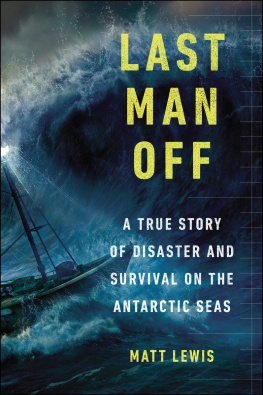
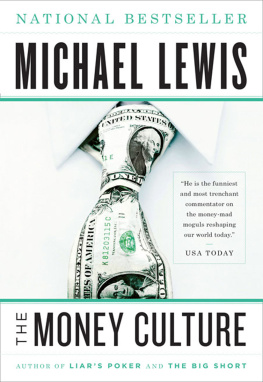
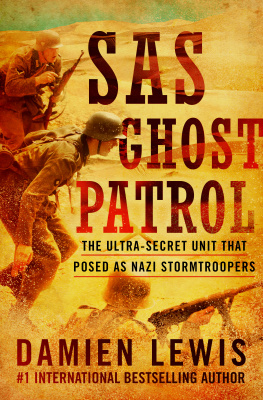




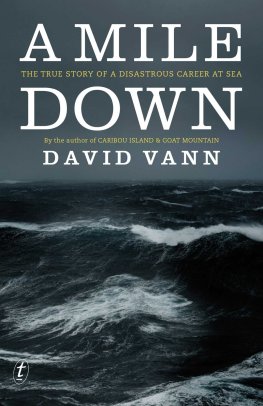

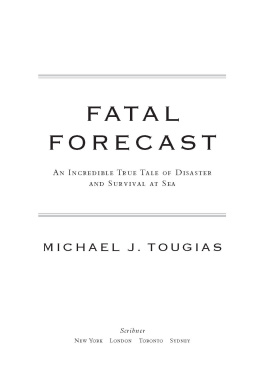
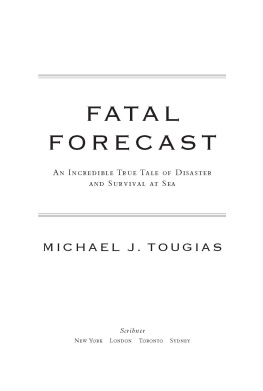
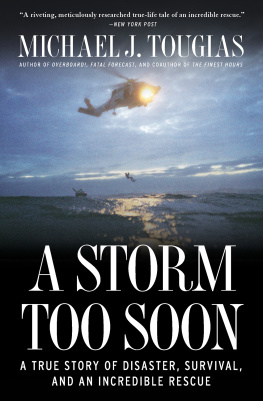
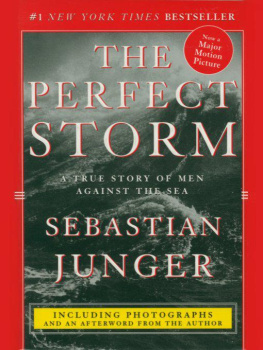
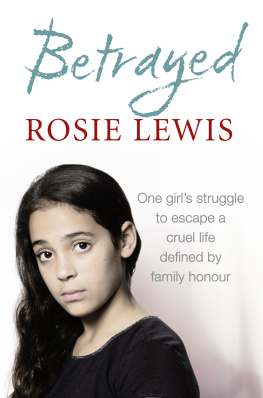
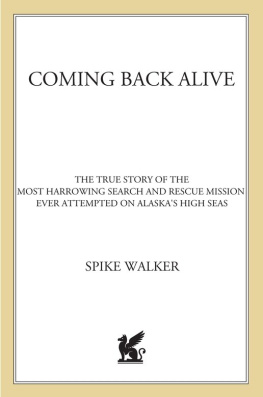
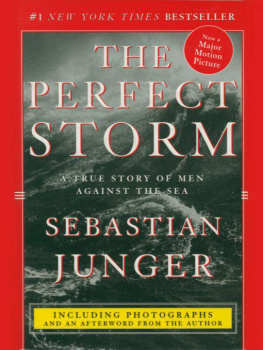



 REGISTERED TRADEMARKMARCA REGISTRADA
REGISTERED TRADEMARKMARCA REGISTRADA